Technology may stall Xi Jinping’s Taiwan aim, and Australia needs to watch US approach

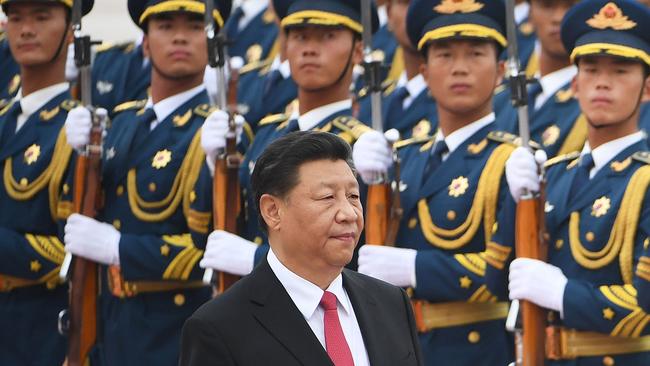
President Xi Jinping would love to have a legacy showing he incorporated both Hong Kong and Taiwan into mainstream China. All the modelling in China and the US shows that the defence equipment mistakes of the US, led by the Joint Strike Fighter/F35, gives China an advantage that might not always be there.
Moreover US President Joe Biden is losing popularity and might not throw the full US might into the defence of Taiwan. But Xi has hesitated, and engaged in discussions with the with the US.
No one in the West is privy to what happens in the inner circles of the Communist Party in China but two clear weaknesses have emerged in the past year that would cause any leader to hesitate.
The first is rarely talked about but is at the heart of all modern nations: the “chip”.
Any nation that seeks to take on the world needs to be a global leader in microchip development. Sadly for Xi mainland China’s biggest chipmaker, Semiconductor Manufacturing International, is not even close to global leadership.
Over in the US Intel was in a magnificent position to dominate the development of the smaller and smaller microchips but, like the Chinese company, it wasn’t able to master the task.
Instead, the world leader and the most sophisticated microchip manufacturer in the world is the Taiwan Semiconductor Manufacturing operation or TSMC, with headquarters in Taiwan.
In theory China could take over Taiwan and secure world chip (and technology) leadership via TSMC. But that won’t work because TSMC has a unique relationship with US and other nations’ global technology leaders.
TSMC is a “semiconductor foundry” that builds the chips that leading global companies operating in mobile phones, artificial intelligence, semi conductors and wireless telecommunications need.
Global names such as Apple, ARM, Nvidia, and Qualcomm are part of the TSMC network.
They share their plans for the future, giving TSMC its world leadership. Even Intel recognises TSMC leadership.
They all trust the Taiwan company. At the same time, leading computer-chip-making tool companies sell their best chip-making tools to TSMC.
This remarkable global collaboration pivoting on Taiwan ensures the TSMC is always at the cutting edge of the material science and lithography that go into building and etching the base of every semiconductor.
Accordingly, TSMC is the world’s largest contract manufacturer of microchips. It has some 50 per cent of the market. Its rival is South Korea’s Samsung. Both are the only companies in the world able to make 5-nanometre chips. Next year TSMC aims to produce 3-nanometre chips. China’s Semiconductor Manufacturing International makes 28 nanometres chips but has started to produce some 14-nanometre chips. It is way behind.
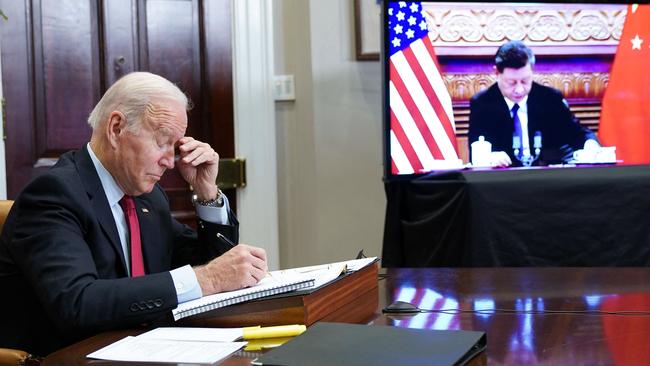
Without this global co-operation the development of smaller and smaller chips, and the increased power they deliver, would not have taken place. A China invasion of Taiwan would stop continued development in its tracks and delay the advancement of world technology for many years.
A situation like that has clear non-military dangers that would make any leader thinking of a Taiwan invasion hesitate. Xi is clearly hesitating and appears to be telling President Biden that unless Taiwan provokes him he won’t take the invasion step at this time.
But there is a second reason that would be causing China to hesitate.
Domestically, just about everything that could go wrong has gone wrong. President Xi embarked on an ambitious program of moderating house prices and reducing the role of major technology companies.
He also played the carbon game and stopped ordering Australian coal but couldn’t replace it quickly and adequately enough. China has had blackouts, Covid-19 lockdowns and now its apartment building industry is in grave jeopardy because it borrowed too much money and couldn’t complete its apartments.
Nothing illustrates that better then the listed debt securities of Chinese developers that on global markets are yielding a theoretical 25 per cent and above. Markets expect them to fail.
The great danger for Australia is that we have skilfully created alliances and relationships with the US that are based on our mutual distrust of China, which in our case has been multiplied by China’s trade attacks on Australia.
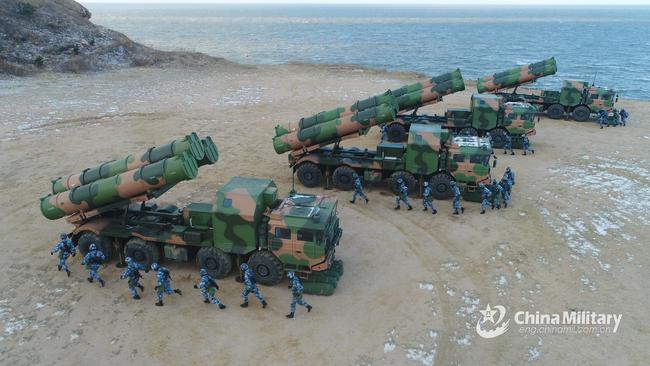
It is early days but it is possible that the US and China will begin to co-operate in climate, and in other areas, if the US believes that an invasion of Taiwan is not likely in the near future.
It’s much too early to predict changing US attitudes from recent discussions but we will need to be very closely attuned to the messages coming out of Washington or we will be left as a pariah.
At this stage the Morrison government, and particularly Defence Minister Peter Dutton, is showing no sign of changing course.
But the essence of a being small country moving on the edge of giant powers is to be flexible and understand any changing relationships that are taking place.
And if there is a change, then we need to pull our head in. Our trade will greatly benefit while we still maintain close links with the US. The worst thing that can happen to Australia is to become completely isolated from any change in US-China directions.

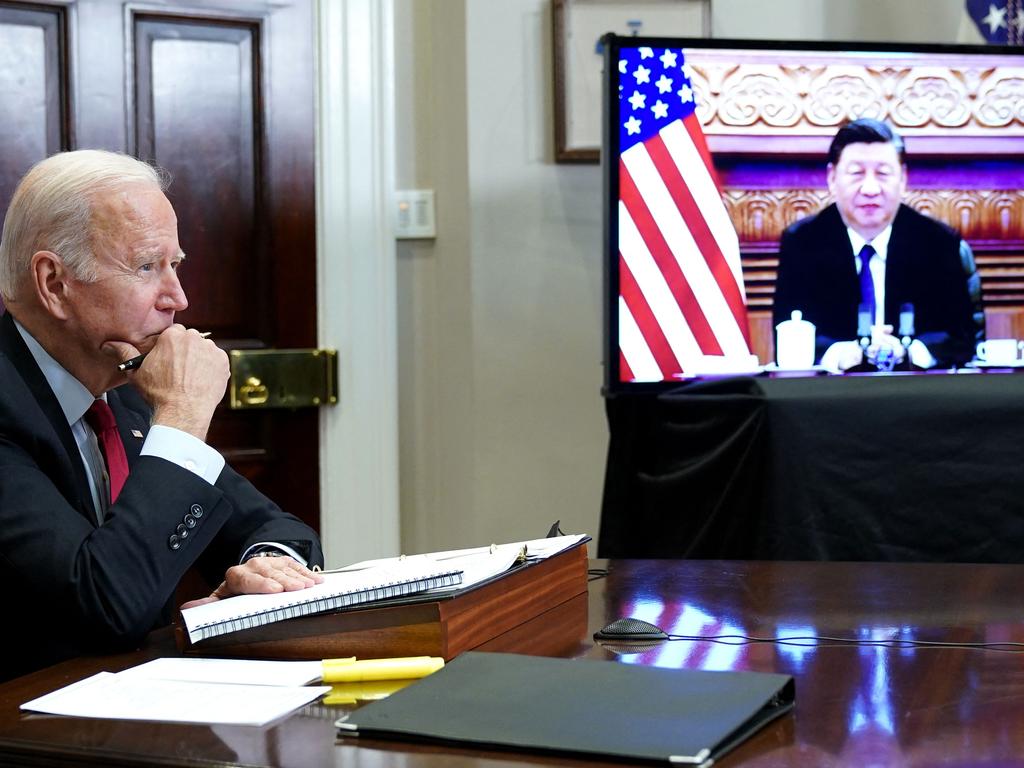
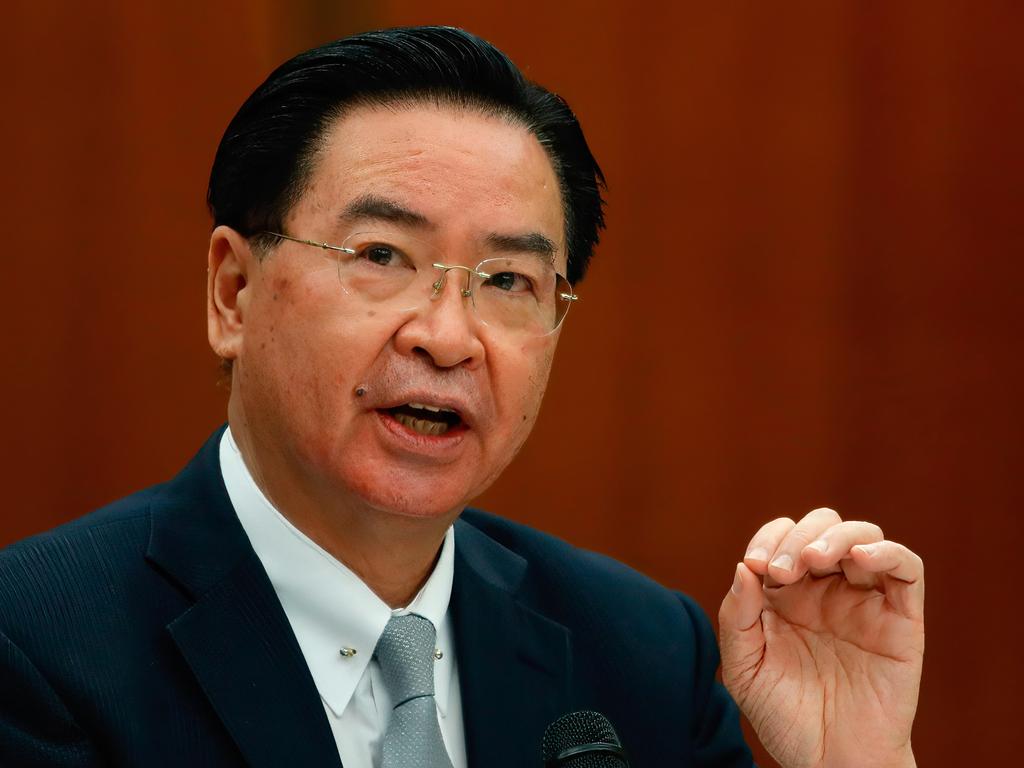
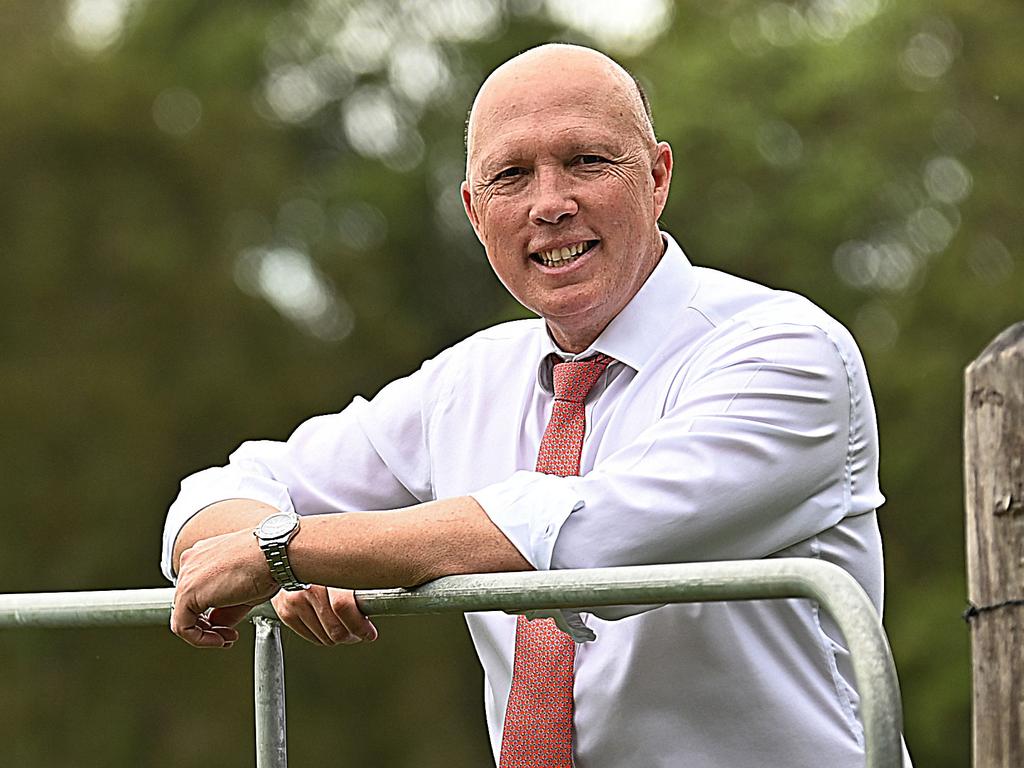



On the surface now is a perfect time for China to take control of Taiwan.